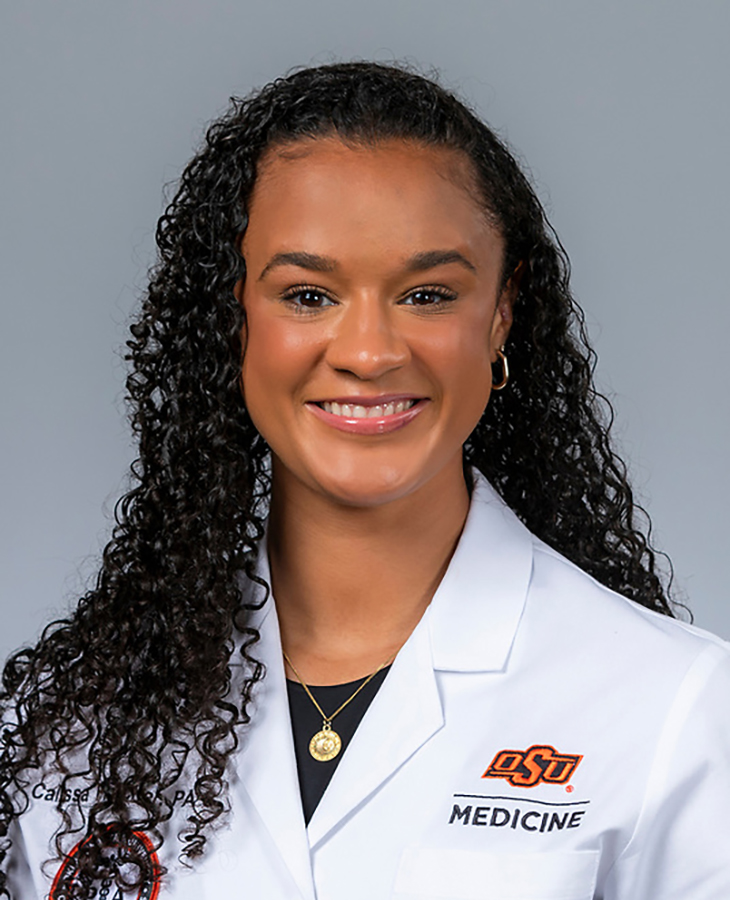
Black History Month Student Spotlight: Cali Fletcher
Monday, February 3, 2025
Media Contact: Kayley Spielbusch | Digital Communications Specialist | 918-561-5759 | kspielb@okstate.edu
Cali Fletcher’s passion for helping others got her thinking about a career in health care, which then led her to the Physician Assistant Program at Oklahoma State University Center for Health Sciences.
As an older sister, Fletcher assumed the role of a caregiver in her family when she was living in Frisco, Texas.
“I realized that I was driven by the desire to be someone others could count on during times of need,” she said. “This naturally led me to explore health care as a career, where I could combine my nurturing instincts with my love for problem-solving.”
Being part of a team is essential to Fletcher’s sense of purpose, she said, thriving in environments where everyone works toward a common goal. While searching for a profession that would have that team dynamic, she discovered the role of a physician assistant.
“I’m drawn to the idea of being an integral part of a health care team where I’m making a direct impact on the lives of my patients and contributing to a team united in its mission to provide exceptional care,” she said.
Fletcher’s aspiration to become a physician assistant led her to OSU-CHS. Initially, as one of the few Black students in her cohort, she wondered how her identity might affect her experience, but she said her time at OSU-CHS has been positive and enriching.
Every student in the physician assistant program, regardless of their background, is supported in every capacity, Fletcher said, and she feels seen and celebrated in the way that matters the most to her — becoming the best health care provider she can be.
“The culture here truly fosters inclusivity. It is not just spoken about; it is woven into the fabric of the program and evident in the way we interact and collaborate,” she said.
“I’m drawn to the idea of being an integral part of a health care team where I’m making
a direct impact on the lives of my patients and contributing to a team united in its
mission to provide exceptional care.”
As a biracial female, Fletcher said she didn’t see health care providers or physicians that looked like her growing up. Her journey to becoming a physician assistant opened her eyes to the broader issue of representation in the field.
“The absence of health care providers who look like me is a constant reminder of the significant gap in racial representation in medicine,” she said. “This gap impacts patient outcomes and overall trust in the health care system.”
Fletcher said she is highly motivated to contribute to better representation in health care, and that it goes beyond having a provider that shares a patient's racial or ethnic background. It also fosters trust, empathy and understanding.
“The smallest details matter in patient care. I have witnessed how patients light up when they hear their language spoken by a provider or when someone takes the time to understand their cultural nuances,” she said. “In health care, representation is about creating an environment where all patients feel like their care is tailored to their individual needs.”
Fletcher said she wants to be both an advocate and provider for her patients, creating an environment for people who, like her, normally don’t see people who look like them in clinics and hospitals.
“Every patient, regardless of their background, deserves to see someone who understands them and their struggles and their cultural context when they seek care,” she said. “I want to be the role model for other women and little girls who may be seeking compassionate care and yearning to see someone who looks like them in a position of authority.”
